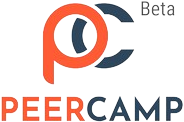
Baishali Chakraborty,

Engaging ICSE Class 1 course covering English, Math, EVS, Computers & Art with fun lessons, creativity, and skill-building activities
-
Level
-
2x per week
-
100 students
Here are some compelling reasons why one should consider a virtual platform for academic subjects:
1. Flexibility in Learning:
Virtual platforms allow students to access lessons at their convenience. Whether you're an early bird or a night owl, you can study whenever it fits your schedule. This flexibility is ideal for balancing academic work with extracurricular activities or part-time jobs.
2. Access to a Wide Range of Resources:
Online platforms provide access to a wealth of resources, such as videos, quizzes, readings, and interactive tools. You can revisit lessons as many times as you need, enhancing understanding and retention of material.
3. Learn at Your Own Pace:
Unlike traditional classrooms, where you follow a set pace, virtual platforms often allow you to progress through lessons at your own speed. If you grasp a concept quickly, you can move ahead, and if you're struggling, you can take extra time to review and understand.
4. Interactive and Engaging Content:
Many virtual platforms use multimedia, including animations, simulations, and interactive activities, to make learning more engaging. These methods help break down complex topics into digestible, visually appealing content.
5. Personalized Learning Experience:
Some virtual platforms offer features like AI-driven assessments that adapt to your learning progress. This helps tailor the content to your strengths and weaknesses, ensuring a more personalized educational experience.
6. Global Access:
Virtual platforms allow students to access high-quality education from anywhere in the world. You are no longer limited by geographical location. Whether you're in a remote area or studying abroad, a virtual platform brings the classroom to your fingertips.
7. Cost-Effective:
Online education often eliminates the need for physical textbooks, commuting, and sometimes even class fees. Virtual platforms can be a more affordable option, especially if you have access to free or low-cost resources.
8. Immediate Feedback and Support:
Many virtual platforms offer instant feedback through automated quizzes and assignments. Some platforms also have chat functions or forums where you can interact with instructors or fellow students, allowing for real-time support and collaboration.
9. Enhanced Tech Skills:
By using virtual platforms, students gain valuable technological skills, such as navigating learning management systems, using digital collaboration tools, and managing online resources. These skills are becoming increasingly important in today’s job market.
10. Environmentally Friendly:
Online learning reduces the need for paper, transportation, and other physical resources, making it a more sustainable choice for the environment.
11. No Geographical Barriers:
Students can access lessons from top institutions or tutors worldwide, enabling them to learn from the best, even if they live in an area with limited educational opportunities.
Conclusion:
Virtual platforms for academic subjects provide flexibility, accessibility, and a rich array of learning tools, making them an excellent choice for modern students. They allow learners to take control of their education, moving at their own pace, while providing a convenient and affordable alternative to traditional classroom learning.
Curriculum Overview
Welcome to the ICSE Class 1 Full Curriculum (All Subjects Except Hindi) — a fun and engaging program designed to build strong foundations in English, Math, EVS, Computers, and Art. Through interactive lessons, hands-on activities, and creative learning, students develop essential skills, confidence, and a love for learning while following the ICSE framework.
ICSE Class 1 Curriculum Structure
English: Focus on stories, poems, rhymes, and basic grammar concepts such as singular/plural, articles, and simple writing exercises.
Mathematics: Covers foundational topics including counting, number names, addition and subtraction, numbers up to 100, basic shapes, and patterns.
Environmental Studies (EVS): Introduces children to self, family, home, school, neighborhood, and their immediate surroundings.
Computer Studies: Introduction to computers, Basic parts and their functions, Using a mouse and keyboard
Arts Education: Drawing and coloring basics, Craft activities to enhance creativity and motor skills
About the Educator | Credentials 
Gig Reviews
- Value - Good
- Content Quality - Satisfactory











 Academics
Academics Tech Skills
Tech Skills Soft Skills
Soft Skills Hobbies & Wellness
Hobbies & Wellness
